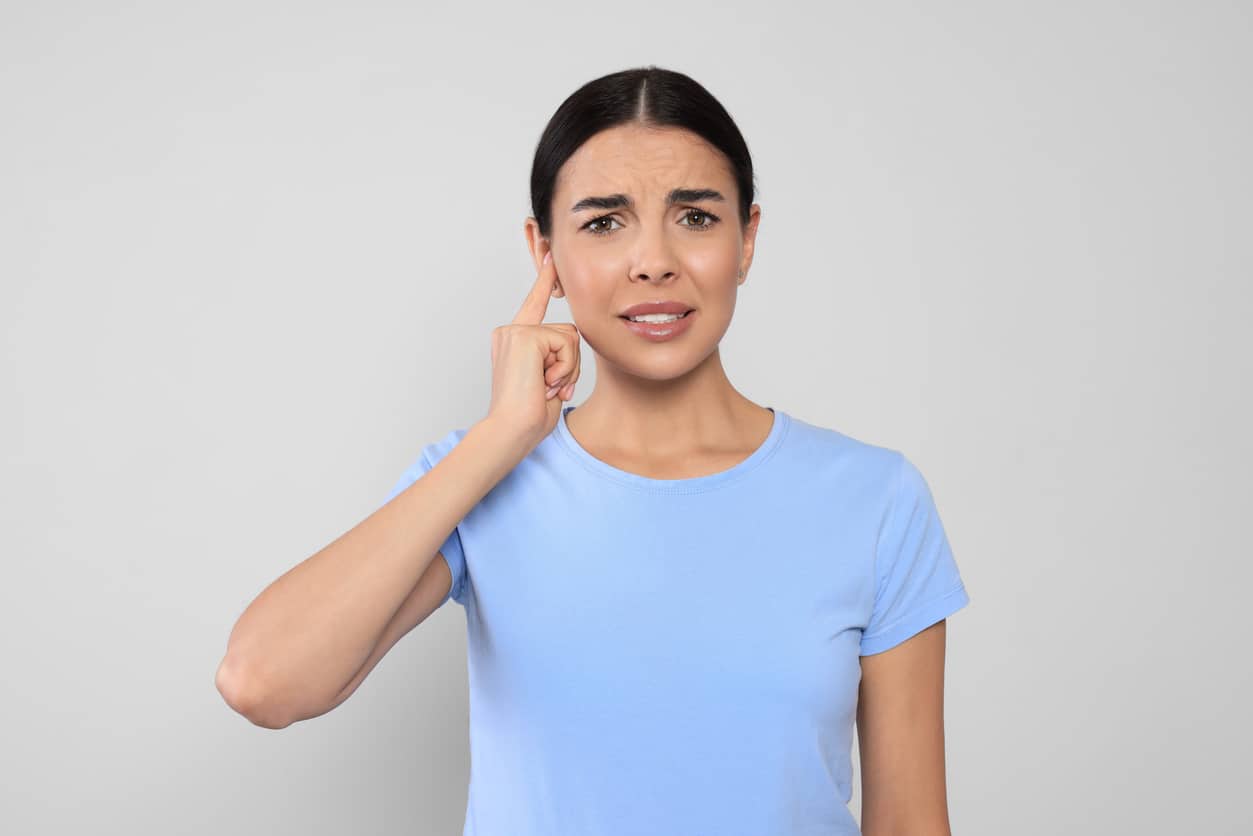No two people experience tinnitus in exactly the same way, which is significant, considering 25 million people suffer from it. It is regularly described as “ears ringing,” but that’s not the only sound tinnitus can manifest as. Let’s discuss what tinnitus can sound like and why it can vary so widely.

Why Tinnitus Sounds Different for Everyone
As said above, “ringing” is the word commonly used to describe what tinnitus sounds like, but it has also been described as buzzing, whooshing, hissing, humming, whistling, crackling, clicking and roaring. Some people even hear music. There are two main reasons why tinnitus sounds vary from person to person.
Cause
The first factor that influences how tinnitus sounds is what caused it. Tinnitus itself is not a condition, but rather a symptom of an underlying condition, much like a fever, which is not a condition in itself, but a symptom of the flu, an infection or another illness. Some common causes of tinnitus include aging, impacted earwax, loud noise exposure, head trauma, cardiovascular diseases, jaw disorders and some medications.
Neural Activity
Tinnitus is a sound with no external source. Your brain is generating the noise. The brain is powerful and is designed to work hard. If it receives incomplete sound information from the ear, or no information at all, it may either create its own sound to make up for the lack or misinterpret sound information and perceive a sound that isn’t there. This is similar to “phantom limb” in amputees: the brain continues to produce a sensation that it thinks should be there.
For Example
Here’s an example of how and why tinnitus sounds a certain way. Suppose you were exposed to a loud noise at close proximity. The powerful sound wave would damage and destroy some of the sensory cells in the cochlea. There are thousands of these cells, and they perceive different pitches. If a large number of the hair cells in charge of perceiving high-pitched sounds are destroyed by the loud noise, then your ability to hear high-pitched sounds is diminished. Your brain, noticing that it’s getting less high-pitched sound, makes up for the loss by generating its own, resulting in tinnitus that sounds like a high-pitched whistle.
Tinnitus Evaluations
If you suffer from tinnitus, it’s a great idea to get a tinnitus evaluation. By describing to a hearing health professional what your tinnitus sounds like and discussing your medical history, you can get to the bottom of why your tinnitus sounds the way it does and what causes it. Call Rancho Santa Fe Audiology today to find out more or schedule an appointment for an evaluation.